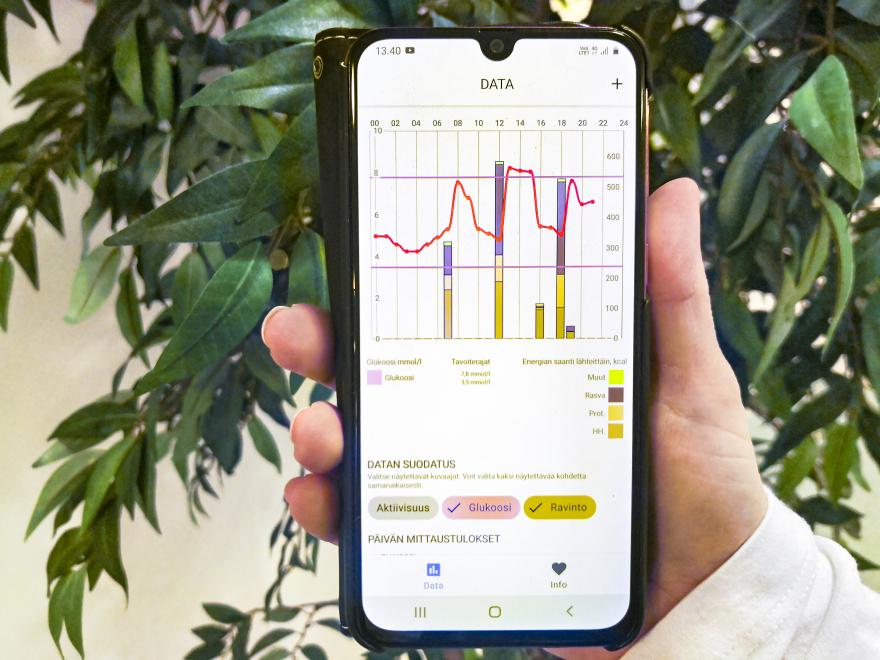Mobile application to treat gestational diabetes
The numbers of gestational diabetes are on the rise, but many mothers-to-be feel that they do not get enough support for their care. The eMOM GDM research is one of the CleverHealth Network projects coordinated by HUS Helsinki University Hospital. As an outcome of the research, a mobile application to improve the glycaemic control for expecting mothers has been developed.
In addition to HUS, the project includes Aalto University and University of Helsinki with Fujitsu and Elisa as company partners. Part of the financing to the project comes from Business Finland.
- “The project aims at creating a service concept which can be used to treat many other illnesses besides gestational diabetes,” project manager Pia Viklund says.
- ”There is a clear demand for an application like this as many patients are hoping for a more personalised and timely guidance. The impact of lifestyle choices to glucose levels can also be difficult to perceive when using the methods currently in use,” research nurse Jaana Palukka explains.

Tiina Riekkola is one of those mothers-to-be who recently got an opportunity to test the usability of the mobile application. She had just been diagnosed with gestational diabetes and had no prior experience on how nutrition, sports and sleep affect glucose levels. The biggest eye-openers for Riekkola were related to eating. ”Thanks to the research, I quickly realised how rye bread, my favourite breakfast and snack, raised my glucose levels too much and kept them elevated. After I switched to oat bread, my glucose levels became much better”, Riekkola says.
Data through several measurement devices
The research is currently progressing to the intervention stage, where 200 gestational diabetics treatable through diet are being recruited mainly from the maternity clinics. 100 of the recruits will be randomly selected to join the active group, whilst the other 100 will be in the control group. Over the course of the research, all participants will get three First Beat wellbeing analyses and their activity levels will be monitored using the UKK activity tracker.
Those in the active group will also get a device monitoring tissue glucose and a smartwatch. They will also keep a diary on their nutrition and use the eMOM GDM application. The goal is that the application would teach the research participants to change their behaviour so that the glucose levels would remain as controlled as possible.
Next step artificial intelligence?
The data obtained from the monitoring devices will be transferred to the data pool for the care personnel and researchers to view through their own user interface. In the future, it could develop into a tool to monitor gestational diabetes, whilst at the moment, the care takes place at the maternity clinics. Later on, artificial intelligence will be added to the application which will, for example, give real-time proposals regarding the patient’s diet.
- 19.06.2024 13:49
CleverHealth Network collaboration between HUS and Fujitsu moves dialysis from hospitals to homes - 06.05.2024 14:27
eMOM project has been completed with promising findings in helping mothers to manage their gestational diabetes - 06.05.2024 13:56
The PHEMS EU project promotes the use of pediatric healthcare data between hospitals - 31.01.2024 11:44
ONCOVALUE project to automate data collection and analytics in assessing real-life effectiveness of cancer care - 26.01.2024 13:33
Impressive results, new ideas and interaction at the CleverHealth Network annual seminar - 02.11.2023 12:35
New remote care solution improves patients' quality of life and brings significant savings to society - 22.09.2023 10:26
A graduate thesis within CleverHealth Network studied the cost-effectiveness of clinical support system for diagnosing vasculitis - 22.08.2023 15:06
Acute leukemia project shows great results in optimizing oncology diagnostic and treatment automation - 22.05.2023 09:24
AstraZeneca joins the CleverHealth Network ecosystem - 03.05.2023 14:47
Tackling pandemics event brings latest results from virus diagnostics to creating health safe spaces - 27.04.2023 09:25
Hewlett Packard Enterprise joins CleverHealth Network - 30.01.2023 10:54
CleverHealth Network ecosystem of digital health innovations yields significant results - 07.12.2022 12:23
Significant EU funding for implementing value-based cancer care at European cancer hospitals - 07.10.2022 09:20
Finnish opera singers contribute to E3 project in detecting differences between people as emitters of aerosols - 10.06.2022 14:28
CleverHealth Network ecosystem and E3 Excellence in Pandemics Response project showcased at HIMSS22 Europe - 18.05.2022 14:25
HUS Acamedic is a certified and scalable virtual research and analytics environment for secure processing of health data - 14.03.2022 09:00
CleverHealth Network showcased at HIMSS Global Health Conference 2022 in March - 17.02.2022 07:37
Novartis is the new partner in the CleverHealth Network ecosystem - 10.12.2021 13:11
Finland must renew its forerunner position in healthcare interoperability - 25.11.2021 14:09
The pandemic boosted the multidisciplinary E3 project on indoor health safety - 11.11.2021 09:51
Telia joins the CleverHealth Network ecosystem - 28.10.2021 10:29
Siemens Healthineers joins the CleverHealth Network collaboration - 04.10.2021 10:43
Fujitsu Finland co-develops a digital service to support treatment of gestational diabetes - 27.05.2021 16:27
Health technology research seeks for tools to support the daily life of dialysis patients and their care personnel - 04.05.2021 17:54
Close collaboration around algorithms in the AI Head Analysis project - 27.04.2021 16:07
Planmeca brings their expertise to CleverHealth Network's AI Head Analysis project focusing on early detection of cerebral hemorrhages - 06.04.2021 10:00
Roche the newest partner of CleverHealth Network - 26.03.2021 16:14
Mobile application to treat gestational diabetes - 01.02.2021 10:30
New preventive care for cardiac disease patients - 21.12.2020 15:00
News on novel initiatives and progress of ecosystem projects were shared at the CleverHealth Network event - 01.12.2020 15:01
Kimmo Porkka's project team harnesses the latest technologies to implement personalised therapies - 05.11.2020 15:30
Smart applications for home dialysis help the daily life of dialysis patients and medical staff - 15.06.2020 15:17
CleverHealth Network ecosystem projects are moving forward - 13.03.2020 13:00
Home dialysis for better quality of life and more efficient treatment - 05.03.2020 15:43
CleverHealth Network projects facilitate diagnostic reliability and improve patient safety - 19.02.2020 15:31
CleverHealth Network wants to start new projects – Pfizer latest partner to join the ecosystem - 27.01.2020 13:00
Fresh media coverage of CleverHealth Network - 24.01.2020 10:49
Networking event in December 2019 was a success - 29.11.2019 13:00
Finnish ecosystem of health innovations continues to grow - 29.08.2019 13:00
CleverHealth Network participated, for the first time, in the HIMSS & Health 2.0 conference organized in Messukeskus, Helsinki 11–13 June 2019. - 10.06.2019 15:00
Digital health innovation ecosystem CleverHealth Network granted Growth Engine status and significant additional funding - 17.04.2019 09:00
Faster and more effective care through artificial intelligence - 28.02.2019 12:45
Aiming for easy and safe remote glucose monitoring for diabetic children - 05.12.2018 15:54
HUS recognised for healthcare IT ecosystem - 01.12.2018 15:00
AI-based diagnostic tool to examine cerebral hemorrhage - 07.03.2018 13:43
AI application for treatment of gestational diabetes - 19.09.2017 17:11
Launching a new ecosystem of digital health innovations

